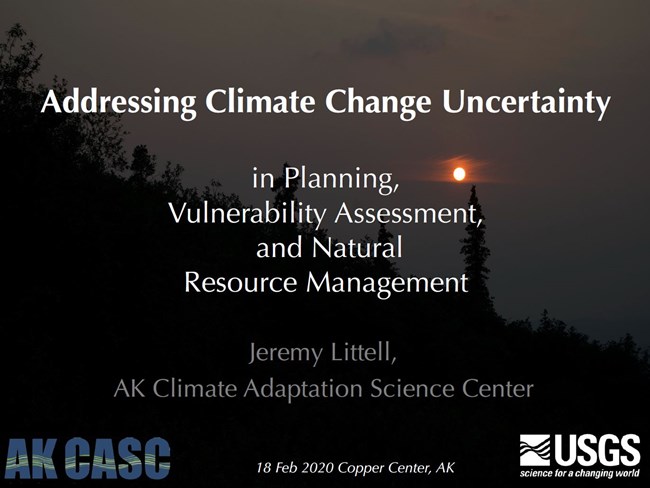Part of a series of articles titled Copper River Basin Symposium - Wrangell-St Elias National Park and Preserve.
Article
Addressing Climate Change Uncertainty in Planning, Vulnerability Assessment and Natural Resource Management.

Jeremy S. Littell, USGS
Climate change affects the natural and built environment in many, often complexly related ways. Yet, incorporating future climate projections into management agency or community planning is legally required, or, at the least, a requirement for obtaining other resources such as grants. One definition of co-production is an iterative partnership between managers who use science as part of their decision making and the researchers who develop that science, such that the science is better tailored to the needs of managers. In climate adaptation work, a key component of the decision-making environment is the uncertainties in climate projections and whether they can be addressed in ways that are simultaneously well communicated and scientifically sound. Here, I describe some common themes encountered in co-production of climate information for various Alaskan stakeholders and why addressing uncertainty directly is important. I address sources of and approaches to climate uncertainty and how they can be accounted for in developing future projections for resource management and planning. I also discuss the implications for using such information in attempting to evaluate what constitutes resilience to future changes and possible exceptions to best-practices. Jeremy S. Littell, USGS jlittell@usgs.gov
Last updated: August 27, 2020
